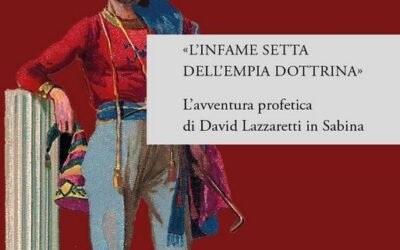The Telegraph’s podcast and series privileged apostate sources and ignored the larger context.
by Massimo Introvigne
Article 1 of 5. Read article 1, article 2, article 3, article 4, and article 5.

Between June 21 and July 12, 2022, the British daily The Telegraph released four episodes of the podcast “Call Bethel” and four companion articles. The series described how the Jehovah’s Witnesses handle allegations of sexual abuse. It claimed that they tend not to report abusers to the police, focusing on two British cases concerning two British ex-Jehovah’s Witnesses who were convicted of sexual abuse of children called Peter Stewart and Clifford Whitely, and on a case in the United States, in Montana.
The Telegraph’s series also revamped the sensational allegations, launched in an article published in the United States by The Atlantic in 2019, that the Jehovah’s Witnesses keep one or more “secret databases” with the names of their members accused of sexual abuse. The implication is that if this list was given to the authorities or to lawyers representing the victims, perpetrators who otherwise escape prosecution would be identified, punished, and prevented from harming other children.
I will examine the Stewart, Whitely, and Montana cases in detail, and discuss the database issue. Preliminarily, however, I believe it is necessary to put The Telegraph’s series into context. Unbeknownst to the journalists who produced it, in the same months when they were preparing their podcast many scholars of religions were busy debating an issue that is central for the series: should the legal protection of the confessional privilege be eliminated in cases of sexual abuse of children? This discussion started in the decade of the 2010s, when Ireland passed in 2015 a law called “Children First Act” and in 2017 the final report of the Australian Royal Commission into Institutional Responses to Child Sexual Abuse was released.
More recently, the academic community has discussed in sessions organized at several leading academic conferences the comprehensive book “Religious Confession and Evidential Privilege in the 21st Century” (Cleveland, Queensland: Shepherd Street Press, 2021), edited by British barrister Mark Hill and by A. Keith Thompson, professor and associate dean at the University of Notre Dame Australia School of Law, which includes chapters about several countries and religions.
I have reviewed the book myself, and would shortly summarize the discussion here. The Catholic Church and the Eastern Orthodox Churches regard auricular confession, where penitents report their sins to a priest to receive absolution, as a sacrament. They consider the secret of the confession sacred and inviolable. Priests cannot reveal secrets learned in confession to anybody, including their bishops or secular authorities, under penalty of excommunication. Although Protestants in general were critical of auricular confession, the Anglican and some Lutheran Churches maintained it, although its practice is now comparatively rare.

European states protected the secrecy of confession based on their recognition of, or agreements with, national churches. For instance, English law protected the secret of confessions to the Anglican Church but did not offer the same protection to Catholic priests who heard confessions. Although a special protection for national churches still exists in several countries, the Hill-Thompson book describes an evolution that started in the 19th century and led democratic countries to protect a “confessional privilege” for all religious organizations where devotees confessed their sins to the organizations’ authorized personnel.
As the book demonstrated, in the United States and elsewhere courts noted that the Catholic model where the penitent confesses to one priest is not the only possible form of confession. It protected the secrecy also of confessional practices when more than one authorized minister or elder receives the confession, notes may be taken, and they may be confidentially shared with the upper echelons of the religious organization for advice or stored. This happened in cases concerning Reformed denominations and the Church of Jesus Christ of Latter-day Saints, popularly known as the Mormon Church. As we will see, this is very much relevant for The Telegraph’s story.
This movement to extend the confessional privilege was somewhat reversed in the 21st century, with the scandals of the pedophile clergy in the Catholic Church and other denominations. Voices were heard that the legal protection of the confessional privilege should be eliminated in cases of sexual abuse of children. Laws were passed to this effect in Ireland in 2015, in most Australian states and territories, in some states of the U.S., and elsewhere in the world. These laws mandate that even when revelations about sexual abuse of children are received in confession, priests or other religious personnel should immediately inform the police.
As also detailed in the Hill-Thompson book, both the Catholic Church and the main Orthodox Churches reacted by instructing their priests to violate these laws and, if necessary, go to jail rather than breaching the secret of the confession. The same book presents different opinions and the arguments of the critics of the anti-confession laws, who argue that they violate religious liberty, open a breach that would eventually destroy the protection of confession also in fields other than sexual abuse of children, and are of little practical effect, because criminals would not confess their crimes to priests or other religious ministers if they know that they may be reported to the police.

The Telegraph’s series presents the issue, which was at the center of the Montana case, whether the confessional privilege should suffer exceptions in cases of sexual abuse of children, as if it was something peculiar to the Jehovah’s Witnesses. They are described as a uniquely stubborn organization when it comes to defend the confidentiality of information obtained in contexts similar to confession.
In fact, as we have seen, the matter has been one of the most debated among scholars of religion and law in recent years, a context The Telegraph completely ignores. Had it considered it, The Telegraph might have compared the position of the Jehovah’s Witnesses to other religions, including the Roman Catholic and Eastern Orthodox Churches.
While the latter order their priests to violate any law that would ask them to report information about sexual abuse of children obtained in confession and suffer the legal consequences—which are declared preferable to excommunication and ultimately eternal damnation—the Jehovah’s Witnesses instruct their elders to comply with the laws of the land.
Where the confessional privilege was granted without exception—the situation discussed in the Montana case—, they relied on it as did other religious organizations. When the laws call for mandatory reporting in cases of sexual abuse, they obey the laws. Today, Jehovah’s Witnesses go one step further, and instruct their elders to report credible allegations of child sexual abuse to the police even in jurisdictions that do not have mandatory reporting laws.
Two other methodological problems negatively affect the reliability of The Telegraph’s series. The first is that it relies almost exclusively on information received by apostate ex-members and their lawyers. “Apostate” is not an insult. It is a technical term used by sociologists to designate those ex-members who become militant critics of the religious organizations they have left. As a series in Bitter Winter explained, most ex-members are not “apostates,” but only apostates talk to the media. Of course, they offer partial and biased accounts.
The Telegraph’s series includes less than thirty seconds where Zoe Knox, a well-known scholar, shortly refers to some beliefs of the Jehovah’s Witnesses, but neither she nor any other academic is interviewed about the criticism at the core of the series. After the very short guest appearance of Knox, the narrator express The Telegraph’s beliefs that “Aside from academics, the people who are really experts on this are those who’ve lived it: former Jehovah’s Witnesses.” By “former Jehovah’s Witnesses” The Telegraph means the apostates, a common media fallacy.
The reporters’ excuse for talking only to the apostates (and their lawyers) is that “It’s hard to speak frankly to people who are still Jehovah’s Witnesses, because they think everyone else is worldly and could be doing Satan’s work.” Scores of academic scholars who have written books about the Jehovah’s Witnesses and interviewed hundreds of them may testify that this is not true.
By working with apostates and, as they admit, “press clippings,” the reporters made mistakes they might have easily avoided. In the podcast, they repeat three times that the Royal Australian Commission “discovered” records of “1,800 sexual abuse cases” among the Jehovah’s Witnesses in Australia (with 1,006 perpetrators) and claim that “in almost every case” the incidents were not reported to the police. This is false.
As Holly Folk, a professor of religious studies at Western Washington University who has studied the issue of Jehovah’s Witnesses and sexual abuse, explained, the Royal Commission figure “reflects the sum of all disciplinary reports and referrals, proven and unproven, that had been submitted to the Jehovah’s Witness organization in Australia over a 65-year period.” The “vast majority” of these cases referred to incest and other instances of abuse in the family, rather than in any religious institutional setting.

“The accusation that there was a cover-up is also not true,” Folk wrote. “Of the 1,006 case files that the Jehovah’s Witnesses provided to the Royal Commission, 383 had been reported to the police at the time they had happened, and 161 had resulted in convictions. The notion that the Jehovah’s Witnesses had hidden information, or had not cooperated with law enforcement, or that these cases had not been brought to justice when they were reviewed and regarded as believable, is simply not true.”
A final remark is that laws protecting children against sexual abuse and the social sensitivity about the issue evolved in time. Judging cases of the 1960s with the standards of the 2020s is unfair with respect to the Jehovah’s Witnesses and any other organization. The podcast mentions this point, but then somewhat forgets it.
In September 2021, the Independent Inquiry into Child Sexual Abuse, a statutory inquiry for England and Wales, published its report on “Child Protection in Religious Organisations and Settings.” The part of the report on the Jehovah’s Witnesses was reviewed in Bitter Winter. While including some criticism, the report also emphasized the positive aspects of the child protection policy set in place by the Jehovah’s Witnesses, and mentioned its historical evolution and improvements.
The report confirmed that (1) Jehovah’s Witnesses now have a policy to report allegations of abuse to the statutory authorities, even when it is not mandated by local laws, and “even if there is only one complainant and no other corroborating evidence” (p. 65, par. 6.3); (2) Jehovah’s Witnesses provided evidence to demonstrate that the policy is applied in practice (p. 64–66, par. 6.1–6.9); and (3) Jehovah’s Witnesses are one of the few religious organizations which have an internal disciplinary process which can lead to the expulsion of congregants who have committed child abuse (p. 71, par. 30). Of course, this strictly ecclesiastical process is independent from reporting the abusers to the authorities, and secular courts cannot interfere with it.

Massimo Introvigne (born June 14, 1955 in Rome) is an Italian sociologist of religions. He is the founder and managing director of the Center for Studies on New Religions (CESNUR), an international network of scholars who study new religious movements. Introvigne is the author of some 70 books and more than 100 articles in the field of sociology of religion. He was the main author of the Enciclopedia delle religioni in Italia (Encyclopedia of Religions in Italy). He is a member of the editorial board for the Interdisciplinary Journal of Research on Religion and of the executive board of University of California Press’ Nova Religio. From January 5 to December 31, 2011, he has served as the “Representative on combating racism, xenophobia and discrimination, with a special focus on discrimination against Christians and members of other religions” of the Organization for Security and Co-operation in Europe (OSCE). From 2012 to 2015 he served as chairperson of the Observatory of Religious Liberty, instituted by the Italian Ministry of Foreign Affairs in order to monitor problems of religious liberty on a worldwide scale.



